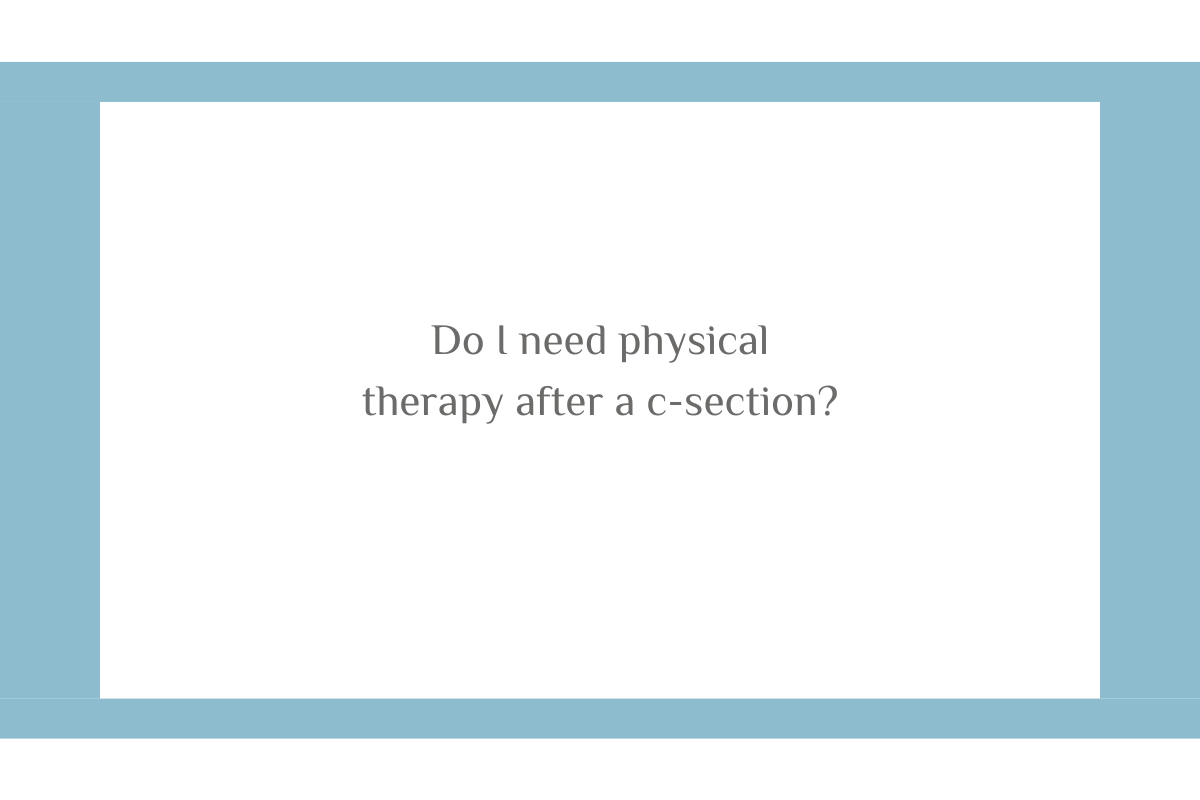Absolute Kinetics Physical Therapy Blog
Why are my hip flexors always tight?
A common thing I hear from my patients or folks in the community is that they feel like their hip flexors are always tight. Many times they say "no matter how much I stretch, they just never loosen up!". So the question becomes, are your hip flexors really "tight"? As in, is that muscle shortened? Why does it feel that way? And why doesn't stretching help?
Why do I pee when I jump or run?
I often see patients who experience urine leaking with both things like coughing, sneezing, laughing AND with things like running, jumping, and lifting weights. Sometimes the reason for loss of urine with these two scenarios are the same, but sometimes there are other factors that are specific to leaking with running and jumping that need to be addressed. Read the blog to learn more.
How Constipation Affects Your Pelvic Health
Constipation is a symptom that many of my patients with back pain and/or pelvic floor dysfunction experience. Sometimes patients are coming in because of bowel dysfunction, but more often than not I am seeing them for something else and as we work through their intake form, we find that constipation could be contributing to their symptoms. In this blog post, we’re going to dive into how to why constipation happens, how to know if you’re constipated, and how constipation can affect your pelvic health.
What is Holistic Physical Therapy?
I often describe my approach to treatment as “holistic physical therapy”. Recently I had someone ask me what I meant by holistic, as they always think of physical therapy as being holistic since we aren’t performing surgery or using injections. This is a great point, so I thought I would write a blog further explaining what I mean when I say holistic physical therapy.
What Should I Do Immediately Following An Injury or Onset of Pain?
When it comes to pain management, there are two things I commonly hear from patients. The first: “No pain, no gain”. The second: “I was having pain, so I didn’t do anything for 2 weeks”. These two statements sit on complete opposite ends of the spectrum when it comes to pain management. And in my experience, neither of these patients end up feeling better from these philosophies.
Can Pelvic Floor Therapy Help With Pelvic Organ Prolapse?
If you’re reading this blog post, chances are you have heard of pelvic organ prolapse. Maybe you have seen someone talking about it on their Instagram page and you aren’t sure what it is, maybe you suspect that you may have pelvic organ prolapse, or maybe you’ve been diagnosed with pelvic organ prolapse and want to learn more about how you can manage it. Read on to learn more about pelvic organ prolapse and how pelvic floor therapy can help.
What is Pelvic Floor Therapy?
Just this week, I saw a post in a Facebook group where an expecting mom was asking about perineal massage for pregnancy and a few women suggested pelvic floor therapy, and others asked what pelvic floor PT is. It made me realize that there are still so many people who don’t realize we can help them! In this post, I’m going to cover what the pelvic floor is, what pelvic floor (or pelvic health) therapy is, and what to expect when you see a pelvic floor therapist.
Simple Tips to Reduce Constipation
More often than not, I find that patients in my office experience some level of constipation. Even those who have daily bowel movements will report that sometimes they have hard stools or have to strain in order to have a bowel movement. First, let’s talk about a few things we need to address when it comes to constipation.
Why do I pee a little when I cough or sneeze?
If you’re a mom or mom-to-be, chances are you’ve been warned about “peezing”. You’ve likely been told that once you have a baby, you’re probably going to pee a little every time you cough or sneeze. It’s just the cost of giving birth, right? No matter how many babies you have delivered, or how you delivered them, peeing every time you cough or sneeze is not normal or something you have to live with. Read the rest of the blog to learn why “peezing” happens, and what to do about it.
Why is Diaphragmatic Breathing Important?
Whether a patient comes to me with neck or back pain, is pregnant and preparing for labor and delivery, or is postpartum and beginning to rehab, we almost always start treatment with diaphragmatic breathing. There are many reasons why learning how to breathe well with your diaphragm is important, and in this blog post I’m going to explain what diaphragmatic breathing is and why you could benefit from working on breathing.
Why we are out of network with insurance
When I first started Absolute Kinetics, I chose the out of network model because it aligned with my goals and vision for the business. Being out of network, I can spend more time with patients each session and provide any type of treatment I think will be beneficial. Check out this post to learn more about this model and to clear up some myths around out of network care.
Are All Calories Equal? Guest Blog Post by 901 Nutrition
While it’s true that all calories have the same unit of energy, calories from food don’t always have the same impact on our weight and overall health. That’s because foods are more than the calories they provide. The various components that make up foods (macronutrients and micronutrients) impact calorie absorption and utilization.
Why kegel chairs won’t fix your leaking (and what will)
When it comes to pelvic floor physical therapy, many people are under the impression that they are just going to be taught how to do kegels. When I was pregnant with my first son, I remember seeing a folder on the wall in my OB’s office titled “kegels” with hand outs of how to do a kegel inside of the folder. This perpetuates the idea that when it comes to the pelvic floor, it’s all about kegels. I’m here to tell you that you don’t need to be doing a billion kegels.
What exercises should you do with diastasis recti?
Diastasis recti (DR) is a common diagnosis postpartum, and there are many myths around diastasis recti. One of the main things folks with DR want to know is what exercises they should or should not do. There is a lot of conflicting information out there about this topic, so let’s dive in and set the record straight.
Urinary urgency and frequency - what is “normal”?
Urinary urgency and frequency are common, and they are sometimes considered “normal”, especially in the postpartum population. Moms will hear things like “that’s the cost of being a mom - peeing your pants, having to pee all the time, or not being able to hold it for very long”. I’m here to tell you that no matter how many kids you’ve had, how far postpartum you are, or even if you feel like you have “always had to pee a lot, even as a kid”, this is something we can work to improve!
Why a Physical Therapist should be a member of your prenatal and postpartum care team
When most people think of physical therapy, they think of patients doing exercises with a band or on a table at a PT clinic after a knee, shoulder, or other orthopedic surgery. Over the past several years, people have realized there is also benefit in seeing a physical therapist before having surgery (“prehab”) or to help reduce injury risk. When I worked in a hospital based system where we saw a lot of patients after joint replacements, we were often referred patients for prehab exercises before their surgery. So if patients are being sent to physical therapy to physically prepare for surgery, why aren’t expecting mothers being referred to physical therapy to help them prepare for what will (most likely) be the most physically demanding event of their life?
Do I need physical therapy after a c-section?
Although c-sections are somewhat common, there is a lot of misunderstanding and misinformation around what c-section mama’s should expect and how they should manage their symptoms postpartum.
How does virtual physical therapy work?
When most people think of physical therapy, they picture a clinic full of patients doing exercises, sitting with hot or cold packs, and/or therapists using manual treatments like scraping, dry needling, cupping, or taping. So what is “virtual” physical therapy, how does it work, and is it effective?
Is Your Efficiency Hurting Your Ability to Do What Matters Most? Guest blog post by Dina Haggenjos
Have you noticed the satisfaction of checking off a to-do list item doesn’t feel as potent, as satisfying as it used to be? Maybe you have lists, you have post-its, a calendar, some are even color-coded …but despite all this, and your ability to rattle off what your child wants for their birthday, where THE favorite toy is in the house, what your partner’s greatest struggle is right now, and how much leftovers are in the fridge you find yourself quietly wondering “Why can I not do the things I want to do? Why is it so hard for me to carve out time for myself? Am I even on this list anywhere?! How am I ever going to reach the goals I have for myself when I can’t imagine adding one more thing?”




















